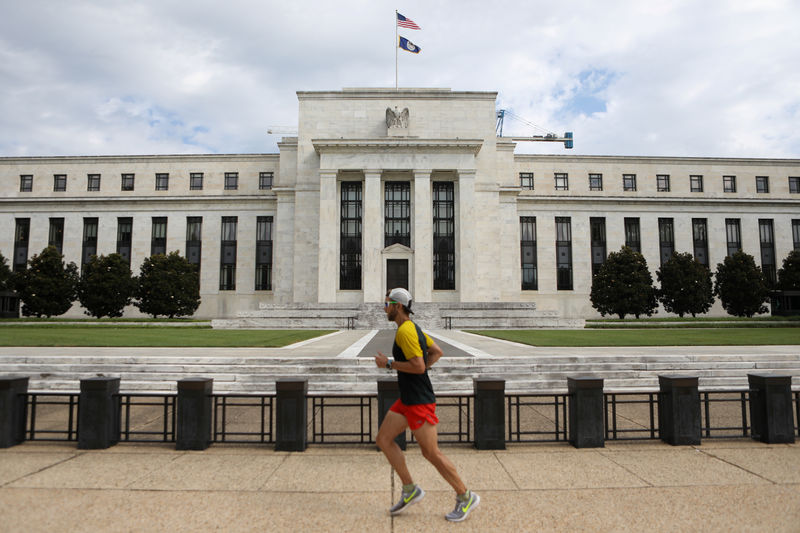By Yasin Ebrahim
Investing.com – The Federal Reserve on Wednesday signalled a sense of urgency to begin raising rates, and reining in crisis-era monetary policy measures to bring red-hot inflation under control.
"With inflation well above 2 percent and a strong labor market, the Committee expects it will soon be appropriate to raise the target range for the federal funds rate," the Fed said in a statement.
The Federal Reserve kept interest rates unchanged within the 0% to 0.25% range, but signalled that liftoff in rates could begin soon after the end of the monthly purchases expected in March.
In December, the Fed said it would double the pace at which it tapers monthly bond purchases to $30 billion each month, with a view to end its quantitative easing program by mid-March.
The odds of a March rate hike have risen to about 93%, according to Investing.com’s Fed Rate Monitor Tool.
The latest signalling from the Fed marks a hawkish shift in policy. Fed Chairman Jerome Powell had previously downplayed how soon rate hikes would follow the end of the tapering.
Stubbornly high inflation has forced the Fed to rethink its monetary policy stance, and part ways with its narrative that price pressures were “transitory.”
The improvement in the labor market has also served as another catalyst for the Fed to step up efforts to combat inflation after the unemployment rate dropped under 4% to pre-pandemic levels.
Wall Street is betting that a potential rate hike in March will be followed up by a further three rates this year, leading to the start of the Fed reducing its balance sheet in the summer.
“We see the Fed delivering its first of four 25bp rate hikes this year at its March meeting, then announcing a more aggressive runoff of its balance sheet in July,” Morgan Stanley said in a note.
But cutting the balance sheet and rising rates at the same time may prove a difficult pill for the market to swallow.
“I would personally like to see the Fed hike once and then use the balance sheet versus rate hikes … Doing both at the same time could be pretty difficult for markets,” John Luke Tyner, portfolio manager at Aptus Capital Advisors said in an interview with Investing.com on Tuesday.
